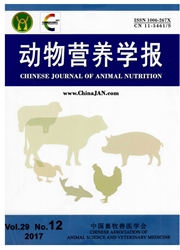

 中文摘要:
中文摘要:
动物肠道益生菌具有免疫调节、形成肠黏膜上皮屏障功能和刺激肠道细胞增殖等多种生理作用。最新研究表明,益生菌一个重要作用机制是可通过调控肠道自由基的水平,既可发挥免疫调节作用,又避免了对肠道产生氧化损伤。益生菌能够刺激肠道细胞产生活性氧自由基( ROS),ROS参与调控肠道细胞内的氧化还原反应过程。同时,益生菌也能够利用其体内相关的酶系,清除肠道细胞产生的过量ROS,从而防止其对肠道的损伤作用。本文对益生菌通过调控肠道自由基水平,既可发挥免疫调节作用,又防止对肠道氧化损伤的功能及其相关机制进行了综述。
 英文摘要:
英文摘要:
Probiotics play many physiological functions, such as immune regulation, epithelial barrier forma-tion and cell proliferation in the intestines. The recent researches showed that probiotics could regulate the level of reactive oxygen species ( ROS) in the gut, which may be the important mechanism of probiotics to play the physiological functions. Probiotics can stimulate the release of ROS in the intestines, as signaling secondary messengers to regulate the intestinal redox process. Meanwhile probiotics can eliminate the excessive ROS re-leased by intestinal cells to prevent the intestinal damage caused by ROS. This paper reviewed how probiotics regulate the level of ROS in the gut, and perform both immunity and antioxidant functions.
 同期刊论文项目
同期刊论文项目
 同项目期刊论文
同项目期刊论文
 期刊信息
期刊信息
